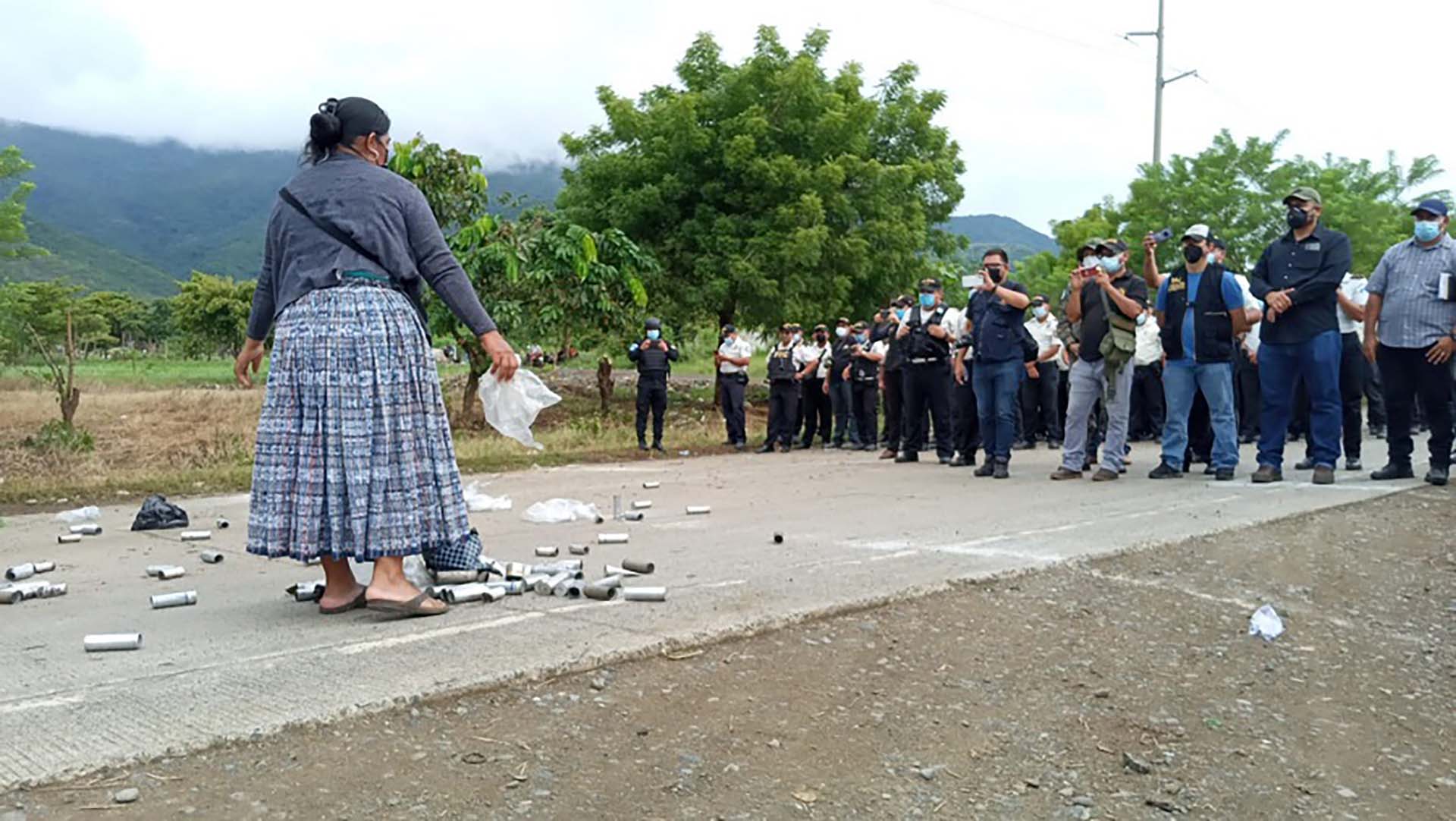
The Indigenous Peoples Rights International (IPRI) expresses its deep concern over information regarding strong abuses of power against Maya Q’eqchi’ Peoples in Guatemala, the killing of an Indigenous Mapuche activist in Argentina, and the ongoing killings and attacks against Indigenous Peoples in Brazil.
According to reliable public information, the government of Guatemala approved the state of siege in El Estor since October 25, following a violent repression against Indigenous Maya Q’eqchi Peoples who resist mining operations within their traditional lands and demand free, prior, and informed consent.
The state of siege suspends the rights of citizens, such as freedom of expression and movement, and gives the military forces the control of security and police forces in the region.
As a result, more than 40 raids against community leaders and 60 arrests have been conducted. Additionally, incidents of abuse of power, violence against children, sexual harassment against young girls, destruction of property, and persecution against Indigenous leaders, involving police and military forces have been denounced.
In Argentina, on November 21, an attack against the community of Lof Quemquemtreu performed by armed persons dressed in civilian clothes resulted in the assassination of Elías Garay, a young Mapuche defender of the territory, and in serious injuries to another member of the community.
Lof Quemquemtreu is an indigenous Mapuche community in the Rio Negro Province. Due to their defense of their ancestral lands against deforestation and outside interests, the community has been for almost two months under a police siege preventing the entry of food supplies and the freedom of movement.
In Brazil, in the first two weeks of November, several attacks and threats against Indigenous Peoples were recorded. According to Amnesty International Brazil, the Military Police of Roraima used excessive force against Indigenous Peoples of the Tabatinga community; two Yanomami persons were shot dead by prospectors, and attacks and arson against Guarani Kaiowá peoples took place. Moreover, indigenous women participants at the recently concluded COP26 of the UNFCCC are being harassed and denounced.
Particularly in Brazil, in 2020 there were 1,083 incidents of violence involving land occupation and dispossession with 178 cases of invasion of indigenous territories and 18 murder victims, of which ten were indigenous.
Sonia Guajajara, National Coordinator of the Articulation of Indigenous Peoples of Brazil (APIB), considered that these attacks and murders “are coordinated by groups with interest contrary to Indigenous Peoples and fostered by a racist discourse and impunity”.
These situations are not isolated events: they respond to the pattern of violent attacks, killings, criminalization of, and impunity against Indigenous Peoples defending their human rights and their lands, territories, and resources, documented by IPRI in various countries.
This context leads to gross violations of individual and collective human rights that threaten Indigenous Peoples’ survival, weakening their ability to exercise their self-determination, autonomy, and self-government.
IPRI strongly condemns these aggressions against Indigenous Peoples and calls on:
- The three governments, to stop criminalization and to fully respect the rights of Indigenous Peoples, including to self-determination and to free, prior, and informed consent. The victims of human rights violations and their families shall be provided with access to justice.
- The Government of Guatemala, to recall its declaration of State of Siege, stop all forms of violence against the Indigenous Peoples of El Estor, conduct appropriate investigations on the alleged human rights violations, bring perpetrators to justice and provide remedy to the victims. Guatemala should also comply with its obligations with regards to adequate consultation and respect for free, prior, and informed consent in the context of activities affecting indigenous lands, territories, and resources, as provided in ILO Convention 169, UNDRIP and American Declaration on the Rights of Indigenous Peoples.
- The Government of Argentina, to adequately protect the rights of the Mapuche people to their lands and territories and to ensure access to justice by conducting a full investigation about the murder of Elías Garay, bring the perpetrators to justice and provide appropriate remedy.
- The Government of Brazil, to immediately halt the use of violence against Indigenous Peoples by official forces and the use of discriminatory and hate speech, to guarantee their protection and respect for their rights and dignity.
IPRI recalls that the three states have ratified ILO Convention 169 and voted in favor of the adoption of the UN Declaration on the Rights of Indigenous Peoples (UNDRIP). IPRI urges the States to abide to their human rights commitments to consult and cooperate in good faith with the Indigenous Peoples concerned through their own representative institutions in order to obtain their free, prior and informed consent before adopting and implementing legislative or administrative measures that may affect them (UNDRIP Art. 19) or approving any project affecting their lands or territories and other resources (OAS Art. 29).
IPRI expresses its solidarity with the affected families, communities, and Indigenous Peoples in Guatemala, Argentina, and Brazil, and reaffirms its aim to fight against violence, criminalization and impunity affecting Indigenous Peoples.
Feature image source: Juan Bautista Xol. Prensa Comunitaria


%2020.49.20.png)
